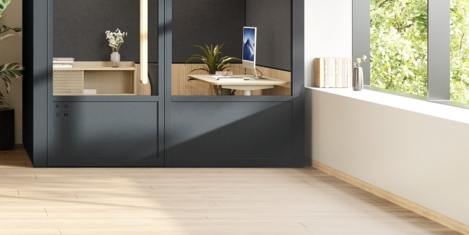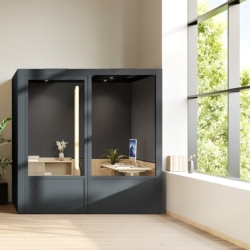To provide the best experiences, we use technologies like cookies to store and/or access device information. Consenting to these technologies will allow us to process data such as browsing behaviour or unique IDs on this site. Not consenting or withdrawing consent, may adversely affect certain features and functions.
The technical storage or access is strictly necessary for the legitimate purpose of enabling the use of a specific service explicitly requested by the subscriber or user, or for the sole purpose of carrying out the transmission of a communication over an electronic communications network.
The technical storage or access is necessary for the legitimate purpose of storing preferences that are not requested by the subscriber or user.
The technical storage or access that is used exclusively for statistical purposes.
The technical storage or access that is used exclusively for anonymous statistical purposes. Without a subpoena, voluntary compliance on the part of your Internet Service Provider, or additional records from a third party, information stored or retrieved for this purpose alone cannot usually be used to identify you.
The technical storage or access is required to create user profiles to send advertising, or to track the user on a website or across several websites for similar marketing purposes.
 Despite many businesses investing heavily in employee benefits, many of these perks fail to deliver their full potential. According to the 2025 Drewberry Employee Benefits and Workplace Satisfaction Survey, just 12 percent of UK employees report being truly satisfied with their benefits package. This gap in satisfaction isn’t always about the benefits themselves, but is often a failure of communication. This latest research shows that while benefits may be in place, just 36 percent of employees fully understand what’s on offer. Even fewer regularly engage with these benefits. (more…)
Despite many businesses investing heavily in employee benefits, many of these perks fail to deliver their full potential. According to the 2025 Drewberry Employee Benefits and Workplace Satisfaction Survey, just 12 percent of UK employees report being truly satisfied with their benefits package. This gap in satisfaction isn’t always about the benefits themselves, but is often a failure of communication. This latest research shows that while benefits may be in place, just 36 percent of employees fully understand what’s on offer. Even fewer regularly engage with these benefits. (more…)


































July 29, 2025
Why winning the AI race starts with workforce readiness
by Weston Morris • AI, Comment, Workplace